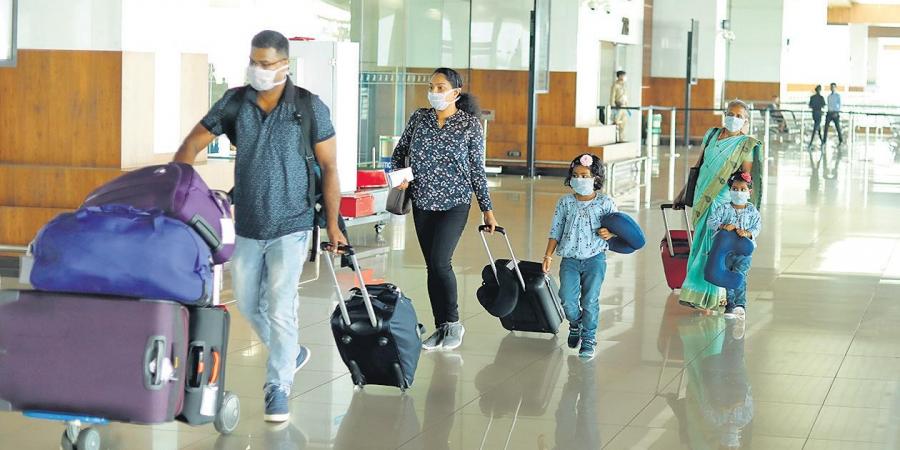Andy Davison, a strong supporter of Malaysia, has spent 25 years promoting the country to the international community, and shares here his opinions and concerns about recent developments regarding the treatment of resident expats in Malaysia.
The Covid-19 pandemic has brought many challenges to governments around the world. Leaders have been forced to make decisions which have a major impact on the electorate and often affect the country’s international image. The big question initially was how much emphasis to put on the health and lives of their citizens and how much to focus on protecting their economies.
While many countries made some effort to protect citizens, there was also the desire not to let the economy collapse. The biggest defence for placing the focus on the economy was the argument that the consequences of depressed economy would be even worse than the virus, which seemed to mostly affect older people or those with underlying health problems, though plenty of younger, healthy people have gotten sick and even died, as well. This issue is still being debated and the world has witnessed how the virus is raging in some countries with a large number of deaths, while other countries have done an excellent job controlling the spread of the disease and report relatively few deaths.
Malaysia decided to focus on the health of its citizens and has done an excellent job in controlling the spread of the disease. In some cases, their actions would not have been possible in more developed countries. Locking up communities behind barbed wire with armed patrols, for example, would have faced heavy resistance in most Western countries and even the compulsory wearing of masks is actively opposed by some in countries where individual liberties are regarded as an integral part of their society.
Interestingly, many expats who have communicated with us welcome the restrictions that have been imposed here and consider it a small price to pay for the low Covid-19 numbers. This may be because expats with employment passes or Malaysia My Second Home (MM2H) visas tend to be better educated and their international experience has made them more practical in their views. They can see the bigger picture and the need for some sacrifices for the greater good.
However, one consistent action by the Malaysian authorities does cause concern, and that is the readiness of the government to lock out people who have made their home here. Most expats with employment passes only have one home – and it is in the country where they work. In the case of the MM2H visa, those pass holders who took up the invitation to make Malaysia their home rarely have anywhere else to live. They tend to be older and many are long-term expats who no longer have close relatives or friends in their home country.
Malaysia’s decision to lock expats out of the country has caused a lot of distress, as you can imagine. I consider it a very unfortunate decision which is as damaging to Malaysia as it is to the many expats who were directly impacted by it. It certainly makes sense to give Malaysian citizens priority, but why treat these other residents in the same manner as casual tourists. The only real risk from letting them into Malaysia is that they may have the disease and have to be hospitalized on arrival. The Covid-19 tests on arrival and the compulsory quarantine ensure that they cannot spread the disease around the country. Additionally, the costs have to be borne by them, so there is no need for the government to incur additional expense.
It is of course very distressing for people with valid passes who have their only home here to be locked out and often separated from their spouses and children who remained here. The situation is made worse because they cannot understand the logic of the decision.
That is the problem from the visa holder’s perspective and given the many other pressing issues, one can almost understand the government not being too concerned about a few hundred distressed foreigners.
However, there is another problem, and that is the damage being done to Malaysia and its international image. This dismissive treatment of foreigners who have made Malaysia their home sends a message that they have little value in the eyes of the government. This can hardly help future efforts to encourage people to join MM2H programme or invest in Malaysia.
Perhaps more concerning is that at time when the economy has been hard hit by the virus (the economy contracted by 17% in the second quarter), most people would have expected a greater focus on economic recovery. The MM2H programme contributes billions of ringgit to the economy, so taking actions which will lessen its contribution does not seem like a wise move, unless there are other factors which are not being shared. The programme has been hard hit not just by upsetting existing visa holders who cannot return to their homes but also by rejecting most recent applicants and then shutting down the programme for the balance of the year and possibly longer.
Equally negative to the country is the decision to make it impossible or difficult for working expats to enter the country. These working expats, by definition, occupy positons which could not be filled by locals (or their visas would be rejected), and generally they hold fairly senior or critical positons in their organization. Keeping them out of the country can only cause problems for the companies where they work and slow down their recovery, again something which is best avoided as businesses struggle to get back on their feet.
Now, Malaysia has decided to bar entry to citizens of some 23 countries, regardless of their travel history, based solely on the passport they hold. They started with India, Indonesia, and the Philippines, then quickly expanded the list to include any country which had more than 150,000 Covid-19 cases. It doesn’t seem to matter whether or not the person had even been in their home country, and the lockout applies to everyone, even if they have Malaysian Permanent Residency.
This decision has been met with plenty of criticism, both from economic and humanitarian perspectives. Even some Members of Parliament are calling for the decision to be reconsidered, along with business leaders, chambers of commerce, and other business associations.
We urge the Malaysian government to rethink this treatment of the resident expat community, not just to reduce the suffering of those caught outside the country but also so they can continue to contribute to the country’s economic recovery, which will benefit all Malaysians.
"ExpatGo welcomes and encourages comments, input, and divergent opinions. However, we kindly request that you use suitable language in your comments, and refrain from any sort of personal attack, hate speech, or disparaging rhetoric. Comments not in line with this are subject to removal from the site. "

















